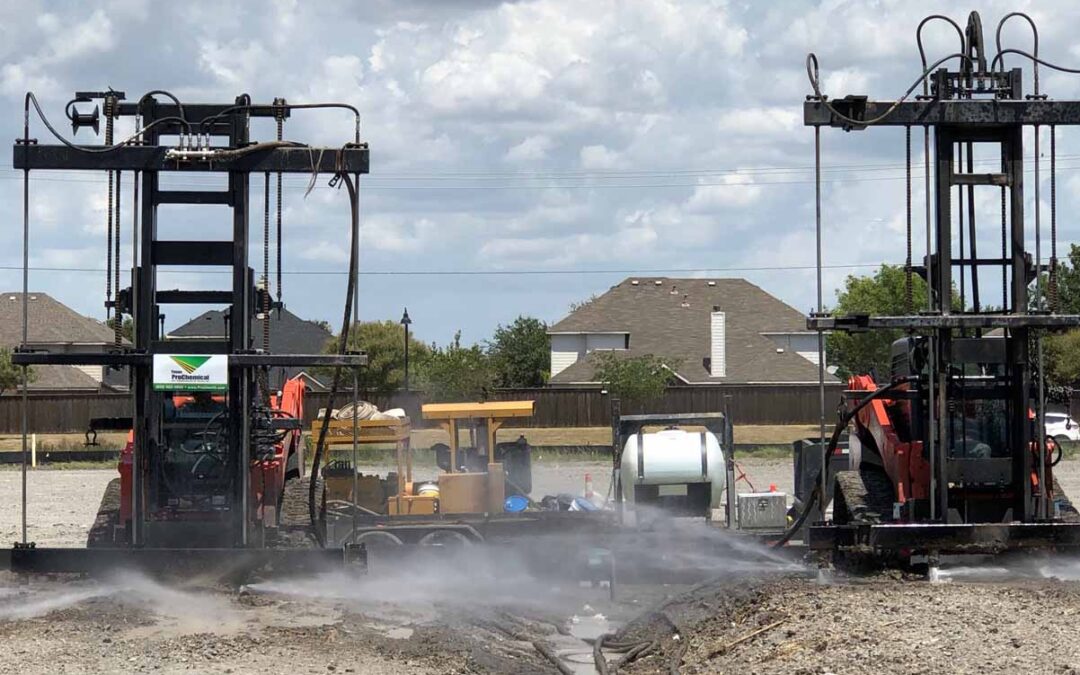When preparing for construction, understanding the ground you build on is just as important as the design itself. One key aspect of this preparation is soil stabilization testing, which doesn’t just ensure stability but also guides the entire foundation design process. This kind of testing is like giving your future building a solid handshake before welcoming it to stay for the long haul. The ground underneath your building plays a critical role in how well everything stands, and getting it wrong can mean expensive repairs down the line.
Pre-construction soil testing helps tailor a foundation that suits the land perfectly. Whether you’re building a home or a commercial structure, it’s wise to start with a clear picture of what’s beneath the surface. Knowing how different soils react to wind, water, and weight can make all the difference for lasting durability. Projects get a lot less risky when you take soil stabilization seriously, ensuring that the structures above are safe and sound.
Understanding Soil Stabilization Testing
Soil stabilization testing is all about evaluating the ground to make sure it can support whatever you’re planning to build. It involves checking out the soil’s characteristics to figure out how steady and supportive it is. Think of it as a friendly inspection of the land’s ability to hold up under pressure. To make the best choices, you need to know what you’re dealing with, and that’s exactly what this testing helps with.
There are various methods of soil stabilization testing, each suited for different conditions and needs. Some common testing methods include:
- Penetration Testing: Helps gauge the density and compactness of soil.
- Soil Sampling: Involves collecting samples for lab analysis to determine properties like moisture content and clay presence.
- Load Testing: Assesses how well soil can bear weight without shifting or sinking.
By using these tests, you can understand the soil’s texture, how it drains water, and its ability to carry weight. Each of these details informs decisions on the designs needed for an effective and efficient foundation. This process saves you from potential headaches, ensuring the soil you build on is ready for the job. All this careful checking means fewer surprises as your building dreams come to life.
Engaging these services leads you toward stronger, more reliable foundations that stand the test of time. It’s about respecting the land and the materials you use, making sure they’re prepared for what’s to come. So before the bricks and beams, make sure the soil is ready, because a secure start means a sturdy finish.
How Soil Stabilization Testing Impacts Foundation Integrity
Understanding how soil stabilization testing affects foundation integrity can make a world of difference in construction outcomes. Before you break ground, testing provides invaluable insights into how the land beneath your future building will behave. This insight allows for a foundation that works in harmony with the soil. Imagine choosing the right shoes for a muddy hike; you wouldn’t pick delicate ones. In much the same way, soil testing guides decisions that help avoid structural issues later.
Thorough testing means your design can be adjusted based on precise needs, reducing risks of foundation shifts. An example involves an independent developer planning to build a row of homes. After conducting soil stabilization tests, they discovered the soil had a higher clay content than expected. With this knowledge, they adjusted their foundation plans, preventing what could have been significant settling issues post-construction.
The Process of Soil Stabilization Testing with ProChemical
Conducting soil stabilization testing involves a few key steps. Initially, experts will examine the site to determine the most appropriate tests based on the specific soil conditions. These tests might include soil sampling and load testing, which assess how the ground reacts under weight. Results from these assessments then guide decisions on treating the soil to enhance its stability and support.
Once the testing phase wraps up, adjustments to the soil’s condition can be made. In some cases, this involves using a specialized ionic solution to alter the soil’s properties. By changing the polarity of clay particles, water doesn’t bond with the clay as easily, reducing problems like swelling and heaving. This tailored approach keeps the soil stable long after the construction is complete.
Protecting Your Construction Project with Reliable Soil Stabilization
Securing a construction project starts from the ground up. Reliable soil stabilization isn’t just a one-time fix; it’s about creating a lasting impact on the structural integrity of your building. Understanding the soil’s nature before building begins can save time, money, and a lot of trouble further down the line.
Every successful project has a strong foundation, and knowing the land well is a critical part of the groundwork. The foresight offered by proper testing guarantees that your building doesn’t just stand, but thrives, creating secure and enduring structures.
If you’re building in Texas, getting the foundation right from the start can save you time and trouble later. Let ProChemical Soil Stabilization help you create strong and lasting structures with our trusted approach to secure foundations in Texas. We’ll make sure your project stands strong from the ground up.

